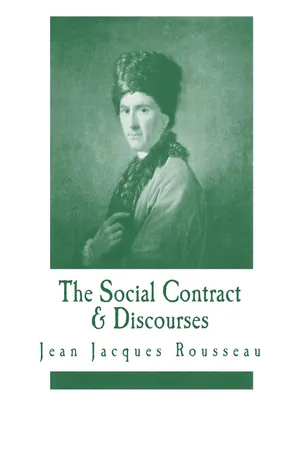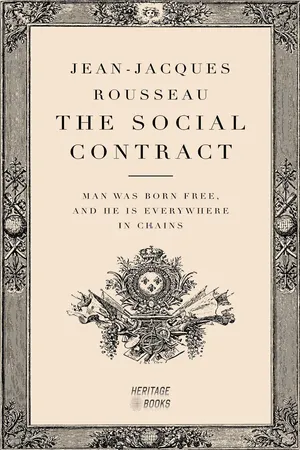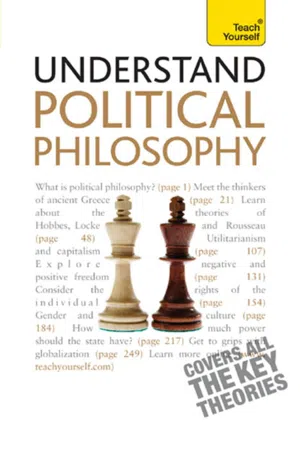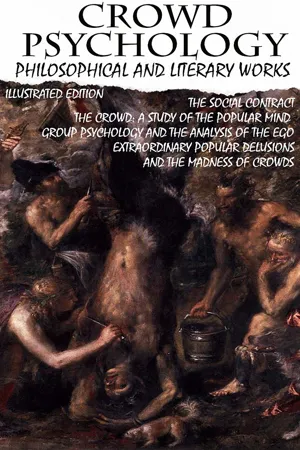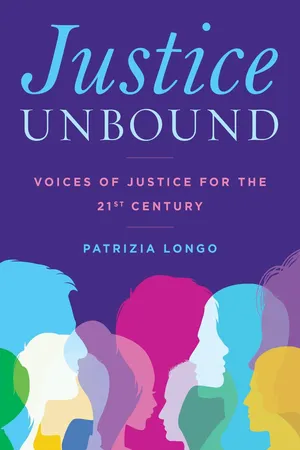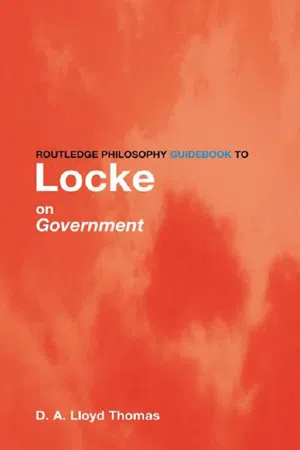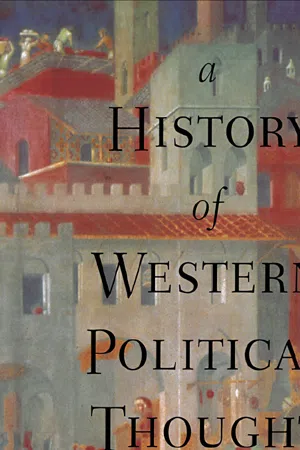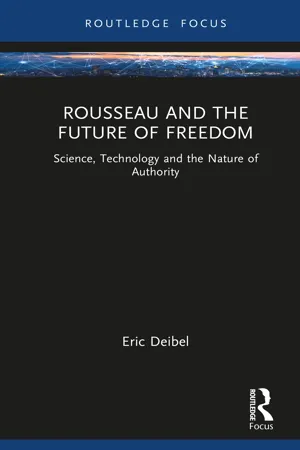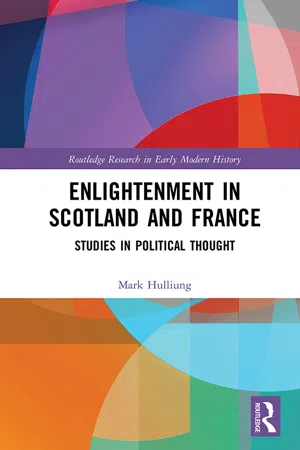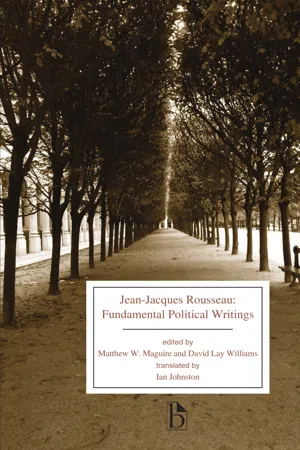Politics & International Relations
The Social Contract
"The Social Contract" is a political theory proposed by philosophers like Jean-Jacques Rousseau, which explores the idea of a hypothetical agreement among individuals to form a society and a government. It suggests that individuals willingly give up some freedoms in exchange for the protection and benefits provided by the government. This concept has had a significant influence on political thought and the development of modern states.
Written by Perlego with AI-assistance
Related key terms
10 Key excerpts on "The Social Contract"
- eBook - ePub
- Jean-Jacques Rousseau(Author)
- 2019(Publication Date)
- Laurus Book Society(Publisher)
The demand was a good popular cry, and it seemed to have the theorists behind it. Rousseau gives his refutation of this view, which he had, in the Discourse on Inequality, maintained in passing, in the sixteenth chapter of the third book of The Social Contract. (See also Book I, chap, iv, init.) His attack is really concerned also with the theory of Hobbes, which in some respects resembles, as we shall see, this first view; but, in form at least, it is directed against this form of contract. It will be possible to examine it more closely, when the second view has been considered. The second view, which may be called The Social Contract theory proper, regards society as originating in, or based on, an agreement between the individuals composing it. It seems to be found first, rather vaguely, in Richard Hooker's Ecclesiastical Polity, from which Locke largely borrowed: and it reappears, in varying forms, in Milton's Tenure of Kings and Magistrates, in Hobbes's Leviathan, in Locke's Treatises on Civil Government, and in Rousseau. The best-known instance of its actual use is by the Pilgrim Fathers on the Mayflower in 1620, in whose declaration occurs the phrase, "We do solemnly and mutually, in the presence of God and of one another, covenant and combine ourselves together into a civil body politic." The natural implication of this view would seem to be the corollary of complete popular Sovereignty which Rousseau draws. But before Rousseau's time it had been used to support views as diverse as those which rested on the first form. We saw that, in Grotius's great work, De Jure Belli et Pacis, it was already possible to doubt which of the two theories was being advocated. The first theory was, historically, a means of popular protest against royal aggression - eBook - ePub
- Jean-Jacques Rousseau(Author)
- 2019(Publication Date)
- Heritage Books(Publisher)
This theory was, we have seen, a commonplace. The amount of historical authenticity assigned to the contract almost universally presupposed varied enormously. Generally, the weaker a writer's rational basis, the more he appealed to history—and invented it. It was, therefore, almost inevitable that Rousseau should cast his theory into the contractual form. There were, indeed, writers of his time who laughed at the contract, but they were not writers who constructed a general system of political philosophy. From Cromwell to Montesquieu and Bentham, it was the practically minded man, impatient of unactual hypotheses, who refused to accept the idea of contract. The theorists were as unanimous in its favour as the Victorians were in favour of the "organic" theory. But we, criticising them in the light of later events, are in a better position for estimating the position The Social Contract really took in their political system. We see that Locke's doctrine of tacit consent made popular control so unreal that he was forced, if the State was to have any hold, to make his contract historical and actual, binding posterity for all time, and that he was also led to admit a quasi-contract between people and government, as a second vindication of popular liberties. Rousseau, on the other hand, bases no vital argument on the historical nature of the contract, in which, indeed, he clearly does not believe. "How," he asks, "did this change [from nature to society] come about?" And he answers that he does not know. Moreover, his aim is to find "a sure and legitimate rule of administration, taking men as they are and laws as they might be"; that is to say, his Social Contract is something which will be found at work in every legitimate society, but which will be in abeyance in all forms of despotism. He clearly means by it no more and no less than the fundamental principle of political association, the basis of the unity which enables us, in the State, to realise political liberty by giving up lawlessness and license. The presentation of this doctrine in the quasi-historical form of The Social Contract theory is due to the accident of the time and place in which Rousseau wrote. At the same time, the importance of the conception is best to be seen in the hard death it dies. Though no-one, for a hundred years or so, has thought of regarding it as historical, it has been found so hard to secure any other phrase explaining as well or better the basis of political union that, to this day, the phraseology of the contract theory largely persists. A conception so vital cannot have been barren.It is indeed, in Rousseau's own thought, only one of the three different ways in which the basis of political union is stated, according to the preoccupation of his mind. When he is thinking quasi-historically, he describes his doctrine as that of The Social Contract. Modern anthropology, in its attempts to explain the complex by means of the simple, often strays further from the straight paths of history and reason. In a semi-legal aspect, using the terminology, if not the standpoint, of jurisprudence, he restates the same doctrine in the form of popular Sovereignty. This use tends continually to pass over into the more philosophical form which comes third. "Sovereignty is the exercise of the general will." Philosophically, Rousseau's doctrine finds its expression in the view that the State is based not on any original convention, not on, any determinate power, but on the living and sustaining rational will of its members. We have now to examine first Sovereignty and then the General Will, which is ultimately Rousseau's guiding conception.Sovereignty is, first and foremost, a legal term, and it has often been held that its use in political philosophy merely leads to confusion. In jurisprudence, we are told, it has the perfectly plain meaning given to it in Austin's famous definition. The Sovereign is "a determinate human superior, not in a habit of obedience to a like superior, but receiving habitual obedience from the bulk - eBook - ePub
- Mel Thompson(Author)
- 2010(Publication Date)
- Teach Yourself(Publisher)
Faced with potential conflicts and mistrust, the best options might seem to be to make an agreement together for mutual protection and support, or to give full authority to an agreed ruler or judge. Both of these imply a contract: the first between citizens of a state, the second between each citizen and the chosen government or ruler.The idea of the political contract has a long history. In his dialogue Crito , Plato puts forward the argument that, by choosing to live in Athens and accepting its protection and the benefits it offers, one is obliged in return to obey its laws. He has Socrates argue that, if a person does not want to obey the laws in Athens, he should go and live elsewhere.But the renewed interest in contract came about because, with the new thinking produced during the Renaissance, and the upheavals in Europe caused by the Reformation, there emerged a society in which emphasis was increasingly placed on the individual. Rather than seeing society as a God-given structure within which individuals were required to fit, thus fulfilling their purpose within the whole, there was a view that people should be able to get together and take their own responsibility for the political rules under which they should live.Thus we arrive at seventeenth- and eighteenth-century contractarianism - eBook - ePub
Crowd psychology. Philosophical and Literary Works. Illustrated Edition
The Social Contract, The Crowd: A Study of the Popular Mind, Group Psychology and The Analysis of the Ego, Extraordinary Popular Delusions and the Madness of Crowds
- Jean-Jacques Rousseau, Gustave Le Bon, Sigmund Freud, Charles Mackay, Wilfred Trotter, Everett Dean Martin, G. D. H. Cole, James Strachey(Authors)
- 2023(Publication Date)
- Strelbytskyy Multimedia Publishing(Publisher)
This theory was, we have seen, a commonplace. The amount of historical authenticity assigned to the contract almost universally presupposed varied enormously. Generally, the weaker a writer's rational basis, the more he appealed to history—and invented it. It was, therefore, almost inevitable that Rousseau should cast his theory into the contractual form. There were, indeed, writers of his time who laughed at the contract, but they were not writers who constructed a general system of political philosophy. From Cromwell to Montesquieu and Bentham, it was the practically minded man, impatient of unactual hypotheses, who refused to accept the idea of contract. The theorists were as unanimous in its favour as the Victorians were in favour of the "organic" theory. But we, criticising them in the light of later events, are in a better position for estimating the position The Social Contract really took in their political system. We see that Locke's doctrine of tacit consent made popular control so unreal that he was forced, if the State was to have any hold, to make his contract historical and actual, binding posterity for all time, and that he was also led to admit a quasi-contract between people and government, as a second vindication of popular liberties. Rousseau, on the other hand, bases no vital argument on the historical nature of the contract, in which, indeed, he clearly does not believe. "How," he asks, "did this change [from nature to society] come about?" And he answers that he does not know. Moreover, his aim is to find "a sure and legitimate rule of administration, taking men as they are and laws as they might be"; that is to say, his Social Contract is something which will be found at work in every legitimate society, but which will be in abeyance in all forms of despotism. He clearly means by it no more and no less than the fundamental principle of political association, the basis of the unity which enables us, in the State, to realise political liberty by giving up lawlessness and license. The presentation of this doctrine in the quasi-historical form of The Social Contract theory is due to the accident of the time and place in which Rousseau wrote. At the same time, the importance of the conception is best to be seen in the hard death it dies. Though no-one, for a hundred years or so, has thought of regarding it as historical, it has been found so hard to secure any other phrase explaining as well or better the basis of political union that, to this day, the phraseology of the contract theory largely persists. A conception so vital cannot have been barren.It is indeed, in Rousseau's own thought, only one of the three different ways in which the basis of political union is stated, according to the preoccupation of his mind. When he is thinking quasi-historically, he describes his doctrine as that of The Social Contract. Modern anthropology, in its attempts to explain the complex by means of the simple, often strays further from the straight paths of history and reason. In a semi-legal aspect, using the terminology, if not the standpoint, of jurisprudence, he restates the same doctrine in the form of popular Sovereignty. This use tends continually to pass over into the more philosophical form which comes third. "Sovereignty is the exercise of the general will." Philosophically, Rousseau's doctrine finds its expression in the view that the State is based not on any original convention, not on, any determinate power, but on the living and sustaining rational will of its members. We have now to examine first Sovereignty and then the General Will, which is ultimately Rousseau's guiding conception.Sovereignty is, first and foremost, a legal term, and it has often been held that its use in political philosophy merely leads to confusion. In jurisprudence, we are told, it has the perfectly plain meaning given to it in Austin's famous definition. The Sovereign is "a determinate human superior, not in a habit of obedience to a like superior, but receiving habitual obedience from the bulk - eBook - ePub
Justice Unbound
Voices of Justice for the 21st Century
- Patrizia Longo(Author)
- 2019(Publication Date)
- Rowman & Littlefield International(Publisher)
‘The problem is to find a form of association which will defend and protect with the whole common force the person and goods of each associate, and in which each, while uniting himself with all, may still obey himself alone, and remain as free as before’. This is the fundamental problem of which The Social Contract provides the solution.The clauses of this contract are so determined by the nature of the act that the slightest modification would make them vain and ineffective; so that, although they have perhaps never been formally set forth, they are everywhere the same and everywhere tacitly admitted and recognised, until, on the violation of the social compact, each regains his original rights and resumes his natural liberty, while losing the conventional liberty in favour of which he renounced it.These clauses, properly understood, may be reduced to one – the total alienation of each associate, together with all his rights, to the whole community; for, in the first place, as each gives himself absolutely, the conditions are the same for all; and, this being so, no one has any interest in making them burdensome to others.Moreover, the alienation being without reserve, the union is as perfect as it can be, and no associate has anything more to demand: for, if the individuals retained certain rights, as there would be no common superior to decide between them and the public, each, being on one point his own judge, would ask to be so on all; the state of nature would thus continue, and the association would necessarily become inoperative or tyrannical.Finally, each man, in giving himself to all, gives himself to nobody; and as there is no associate over whom he does not acquire the same right as he yields others over himself, he gains an equivalent for everything he loses, and an increase of force for the preservation of what he has.If then we discard from the social compact what is not of its essence, we shall find that it reduces itself to the following terms: ‘Each of us puts his person and all his power in common under the supreme direction of the general will, and, in our corporate capacity, we receive each member as an indivisible part of the whole’. - David Lloyd Thomas(Author)
- 2013(Publication Date)
- Routledge(Publisher)
Chapter 2
Social contract and the state
Introduction
In the arts, works once thought to be outrageous innovations sometimes become the ackowledged masterpieces of a later period. So, too, with the principles of political organization. What, for us, are obvious, even platitudinous, political principles were once regarded as radicalism and subversion. Locke's Second Treatise is not the first presentation of what are now regarded as some of the most evident of political principles. But it is the most influential. At the time Locke wrote the Second Treatise these principles were not universally accepted. It is appropriate that we note them at the beginning. This is not just because it is necessary as an introduction to Locke's argument. Since the triumph of political liberalism in the train of the Eastern European revolutions of the late 1980s, these principles have come to receive the assent of the whole respectable political world. Even disreputable holders of political power usually avoid their explicit denial, though not, regrettably, their violation.These are the principles, which are evident to us, but which were radical and unacceptable for many of Locke's contemporaries:- The citizens of a state, no matter what differences might exist between them in social status, authority, or wealth, are basically equal in political standing (II.95).
- Each citizen is equal to all the others in that each possesses certain individual rights which limit what any citizen may do to any other. These rights also limit what the state may do to any of its citizens.
- eBook - ePub
- J. S. McClelland, Dr J S Mcclelland(Authors)
- 2005(Publication Date)
- Routledge(Publisher)
To understand why a Hobbesian Sovereign would have no motive for making a contract with his subjects to limit sovereignty in Civil Society we have to go back to the position a rational egotist would find himself in in the State of Nature. There, thinking the matter out, a rational egotist would come to the conclusion that the best possible situation for him to be in would be where everyone else would be obliged to obey laws made and enforced by himself, while he was not obliged to obey. We saw that one of the things which makes the State of Nature so unbearable would be the realisation that everyone would be thinking the same way, and this would lead to the conclusion that, if only someone were in that enviable position, then the end of the State of Nature would be in sight. In its Hobbesian version, The Social Contract effectively puts one man in the position that all men coveted in the State of Nature. By choosing one man (or a body of men) to be Sovereign, men make the Sovereign a beneficiary of the contract, not a contracting party. The transfer of the Right of Nature from separate individuals to a Sovereign requires no formal act of consent on the Sovereign’s part, let alone any kind of deal. Any rational egotist would be bound by his own nature to accept the job. In formal terms, the Hobbesian contract is an agreement between contracting parties to make one man (or group of men) Sovereign; it therefore follows that in the transition from the State of Nature to Civil Society, everyone except the Sovereign makes the transition. The Sovereign himself therefore remains in the State of Nature, because he has made no agreement with anyone. It follows that if the Sovereign is the one man who gets what everyone else wanted, he would be a fool to bargain away some of his absolute power when everyone except him was in Civil Society. He would simply have no motive. His own nature would tell him not to limit his sovereignty by contract, and the beauty of Hobbes’s argument is that any rational man who was chosen to be Sovereign would think the same thing, and so would any group.Now it is just conceivable that a Sovereign chosen by chance or by choice might take it into his head, in a moment of mistaken benevolence perhaps, to make a contract with his subjects to hold sovereign power on terms. He might say: This will I do, and if I don’t, sack me. Hobbes believes that a Sovereign who did something like that would be failing to understand the very nature of sovereignty. Suppose a Sovereign who had not thought the matter out properly were to make such an agreement. Who would judge when the terms of the contract had been violated? Each man judging for himself would not help much, because who would be the first to rebel when the Sovereign was still powerful enough to kill him? Suppose that all of his subjects taken together, or a majority of them, had the right to decide when the Sovereign had broken the terms of his contract. What then? This is where Hobbes boxes very clever indeed. How could that dissent be made known and make itself felt? Hobbes’s answer is that a collective dissent could only articulate itself through the election of another Sovereign, and, sovereigns being in the State of Nature, the two rival sovereigns would have to fight it out, which would mean the miserable condition of civil war which is a condition only just preferable to the State of Nature. - eBook - ePub
Rousseau and the Future of Freedom
Science, Technology and the Nature of Authority
- Eric Deibel(Author)
- 2022(Publication Date)
- Routledge(Publisher)
Obviously, the same applies to Rousseau’s social contract. The role of science in society are part of his social contract theory, which is the foremost historical instance of a social contract based on the consent of all and in that capacity has become tied to the “project for a future possible state” (Pagden 2013, 162). This applies to Rousseau specifically, as it is his social contract that is usually seen as tied to the rise of nationalism: as “an anticipation of the Nation as a totality” (Althusser 1988, 98). In this version of the theory, Rousseau appears as having initiated the Nation as an empirical reality, through his advocacy of civic education, civic religion, economic reform and so on. Each of these dimensions of his work indicates to a state that has “its first aim” to create “the sort of subjects to whom it can address its call” (see Cassirer 1988, 23). While there is an obvious idealism involved in the creation of such enlightened citizens, Rousseau thereby placed “responsibility at a point where no one before him had looked for it”. While he condemned society like none other, it’s s him who placed “the burden of responsibility” on what society could become (ibid, 32). And this, in turn, is the position for our own attempts to act responsibly when it comes to the split between science and society, whether it is presented theoretically, historically or as a matter of empirical studies. Let’s not be modern/or the legacy of the general will It is Rousseau’s “general will” that Hannah Arendt points to as the decisive historical turning point that gave rise to the mythological frame of societies as “national households”, which is to say that “the people” started being considered in terms of a shared interest, with all of its members beginning to act as if they belong to a single household. These nations became the vehicles for authoritarian leaders, as the personification of the interest of the masses - eBook - ePub
Enlightenment in Scotland and France
Studies in Political Thought
- Mark L. Hulliung(Author)
- 2018(Publication Date)
- Routledge(Publisher)
119Only a radically different social contract would do, one which honored the notion of the general will but recognized that it was nothing unless embedded in a political community and enforced by civic education. “The term human race suggests only a purely collective idea which assures no real union among the inhabitants who constitute it.”120 However universal our human rights, Diderot needs to understand that they must be incarnated in a political community to be meaningful. Once we have formed such a community and enshrined the rights of all its citizens, then and only then will the idea of The Social Contract, for the first time, become reality. At long last we shall learn to refuse Pufendorf’s claim that an individual should be sacrificed or sacrifice himself for the purpose of securing stability. “Is the safety of a single citizen any less the common cause than that of the whole state?”, asks Rousseau. “Rather than that one ought to perish for all, all have engaged their goods and their lives for the defense of each one among them.”121 Oppression of individuals, of social classes, of the entire society will end; the volonté générale will triumph.Rousseau had no illusions about the prospects of bringing into existence a socio-political order founded on a just social contract, maintained by the “general will.” The very likely insuperable problem, as he put it, was thatthe effect would have to become the cause; the social spirit, which should be the result of the institution, would have to preside over the founding of the institution itself; and men would have to be prior to laws what they ought to become by means of laws.122Corrupted by society, we are incapable on our own of consenting to the creation of a just polity. We must be “forced to be free.” A Great Legislator, a modern Lycurgus, must impose upon us the civic education spelled out in “Political Authority,” the Social Contract , and The Government of Poland - Jean-Jacques Rousseau, Matthew W. Maguire, David Lay Williams, Ian Johnston(Authors)
- 2018(Publication Date)
- Broadview Press(Publisher)
From whatever side we return to this principle, we always reach the same conclusion, namely, that the social pact establishes among the citizens such equality, that they all commit themselves to the same conditions and should all enjoy the same rights. Thus, by the nature of the pact, each act of sovereignty, that is to say, every authentic act of the general will, imposes obligations on or favors all the citizens equally. Hence, the sovereign recognizes only the body of the nation and makes no distinctions among any of those who compose it. What, then, strictly speaking, is an act of sovereignty? It is not a convention between a superior and an inferior, but a convention between a body and each one of its members. It is a legitimate convention, because it is founded on The Social Contract, equitable, because it is common to all, useful, because it can have no purpose other than the general good, and firm, because it is guaranteed by public force and the supreme power. As long as the subjects are bound solely to conventions like this, they are not obeying anyone other than their own will. And to ask how far the respective rights of the sovereign and of the citizens extend is to ask how far the latter can commit themselves to themselves, each person to all and all to each.We see from this that the sovereign power, wholly absolute, wholly sacred, and wholly inviolable as it is, does not and cannot exceed the limits of general conventions, and that every man is fully capable of disposing of what these conventions have left him of his goods and his liberty, so that the sovereign never has the right to impose more on one subject than on another, because then, when the issue becomes particular, the sovereign’s power is no longer competent.Once we have acknowledged these distinctions, it is altogether wrong to claim that in The Social Contract there is any genuine renunciation on the part of individuals, so much so that their situation, as a result of this contract, is actually preferable to what it was previously and that, rather than an alienation, they have only made an advantageous exchange of an uncertain and precarious way of life for a better and more secure alternative, trading natural independence for liberty, power to harm others for their own security, and their own strength, which others can overwhelm, for a right that the social union makes invincible. Their very life, which they have dedicated to the state, is constantly protected by it, and when they risk their lives in its defense what are they doing then other than giving back to the state what they have received from it? What are they doing that they would not be doing more frequently and more dangerously in the state of nature, when they would be fighting inevitable battles and putting their lives in peril to defend what serves to preserve them? Everyone must fight when the homeland needs him, that is true. But it is also true that no one ever has to fight for himself. Where our security is concerned, do we not still gain by running some of the risks we would have to run on our own as soon as it was taken away from us?
Index pages curate the most relevant extracts from our library of academic textbooks. They’ve been created using an in-house natural language model (NLM), each adding context and meaning to key research topics.
